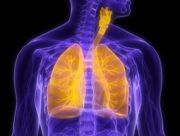Article
Breathing Room in Obesity: Insulin's Impact on Lung Structure
Author(s):
With a focus on how obesity affects the lungs, a team of researchers examines insulin's direct impact on lung cells in the context of airway remodeling and hyperresponsiveness.

While some clinicians believe obesity has profound effects on physiologic systems and lasting repercussions as children age, few studies with long-term outcomes confirm those theories.
In an effort to shed some light on the topic, a multinational team of researchers recently published a review of longitudinal data on the effects of childhood obesity in adult pulmonary outcomes.
The authors said many obesity-related disorders begin in childhood; thus, they are classified as early onset. Because the disorders start early, affected individuals are at a greater risk of experiencing early complications and death. In other words, obese children tend to become obese adults who struggle with lifelong problems.
With a focus on how obesity affects the lungs, the researchers examined insulin’s direct impact on lung cells in the context of airway remodeling and hyperresponsiveness, noting the significant knowledge gap regarding insulin’s affect on pulmonary function.
Insulin may influence lung structure and function dynamically throughout life, creating a predisposition for asthma in some individuals. For example, lung epithelial cells express insulin receptors abundantly in prenatal lung development, though the receptor levels decrease during later stages of development. Maternal insulin may affect the fetus, and there is even evidence that maternal diabetes impacts fetal pulmonary development.
The authors reviewed other evidence of interest to endocrinologists, including how research into inhaled pulmonary products has expanded clinical knowledge, as well as the role of insulin as a growth factor and its affect on signaling pathways.
Though the review findings are not surprising to most healthcare professionals, they introduce an emerging area of study and identify areas where more research is needed.




